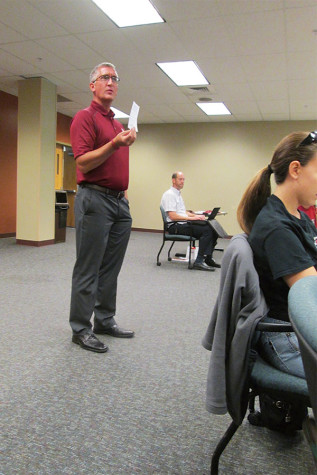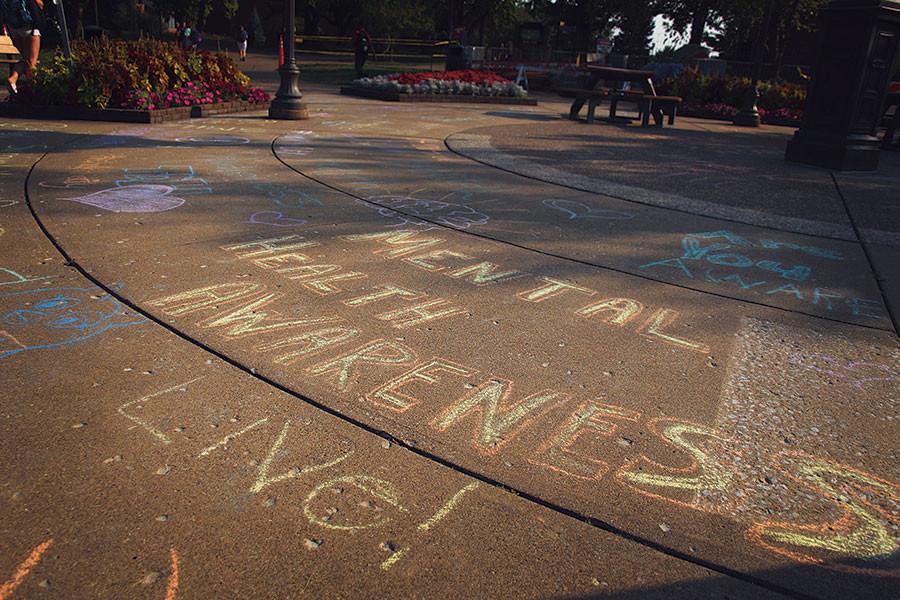Mental health 101
September 8, 2015
Mental Health affects everyone, but it is a topic many find difficult. One in four adults experiences a mental health condition every year. One in seventeen lives with a serious mental illness.
An interdisciplinary team of IU Southeast faculty and staff, in conjunction with local experts, kicked off the Mental Health and Wellness series on Tuesday with a seminar called Mental Health 101. Students, faculty and staff gathered in University Center 127 to learn how to identify and respond to mental health issues.
Beth Rueschhoff, assistant professor of biology, highlighted the goal of this series.
“We want to create a clear and open dialogue about mental health,” Rueschhoff said. “This event was very well received last year which is why we’re repeating it this year.”

Karen Richie, counselor and care manager for IU Southeast Personal Counseling Services, began the seminar by stressing the importance of catching the signs of mental illness early.
“Warning signs include loss of interest in things we like to do and rapid mood changes can be signs of depression,” said Richie.
Richie also described the dangers of stigmatizing mental illnesses.
“Stigma is one of the main reasons people do not seek the help they need,” Richie said.
“Many people have more trouble living with the stigma than the illness, which is crazy because we create the stigma.”
Personal Counseling Services invited students to write destigmatizing statements in chalk in McCullough Plaza on Wednesday as a way to raise awareness of this issue.
Emily Stano, Counselor for Personal Counseling Services, spoke about the importance that taking a break can have on mental health issues, particularly when dealing with school related stress.
“When stakes are high, like midterms and finals, it’s important that you don’t overwork yourself. It’s important to take breaks. Mental health is just as important as your physical health,” Stano said.
Michael Day, personal counselor for Personal Counseling Services, stressed the importance of catching mental illness early.

“Some mental illness can be like the flu but if it is left untreated it can turn into pneumonia,” Day said.
To help spot mental illness early, Day is supporting the “tell me about your day campaign.” The campaign encourages individuals to ask others about their day as a way to better assess how they are feeling. He encourages students to wear bracelets with the motto written on them as a way to promote the campaign.
“Talking decreases depression and isolation. We’re asking people to wear these bracelets to promote that idea,” Day said.
The seminar taught Sarah Mann, psychology sophomore, how to identify the warning signs of mental health issues.
“Just because someone looks happy on the outside doesn’t mean they are on the inside. So you need to make sure you notice warning signs when they’re there,” Mann said.
The Mental Health and Wellness series will continue throughout the school year, ending in April. The events will focus on topics such as suicide prevention and substance abuse.
For more information contact the following: Beth Rueschhoff at erueschh@ius.edu (Biology) Meghan Kahn at mckahn@ius.edu (Psychology) Michael Day at micaday@ius.edu (Personal Counseling).
Mental health warning signs:
- Social withdrawal: Spending increased time alone
- Change in sleep and eating patterns
- Stop participating in activities they used to enjoy
- Changed performance in academics or job
- Poor hygiene
- Losing touch with reality
- Risky behavior: Experimenting with drugs and alcohol, having unsafe sex or spending money recklessly


